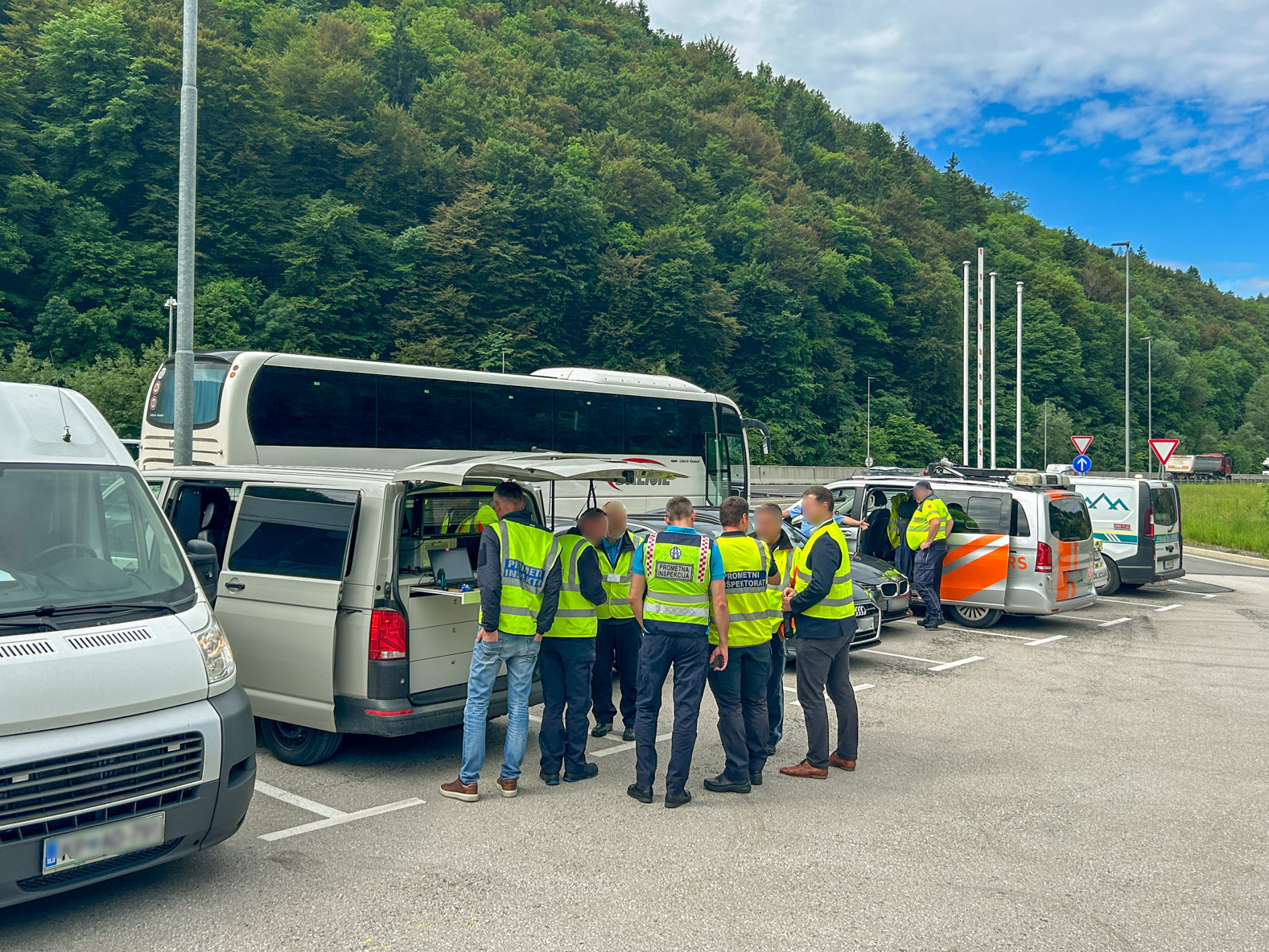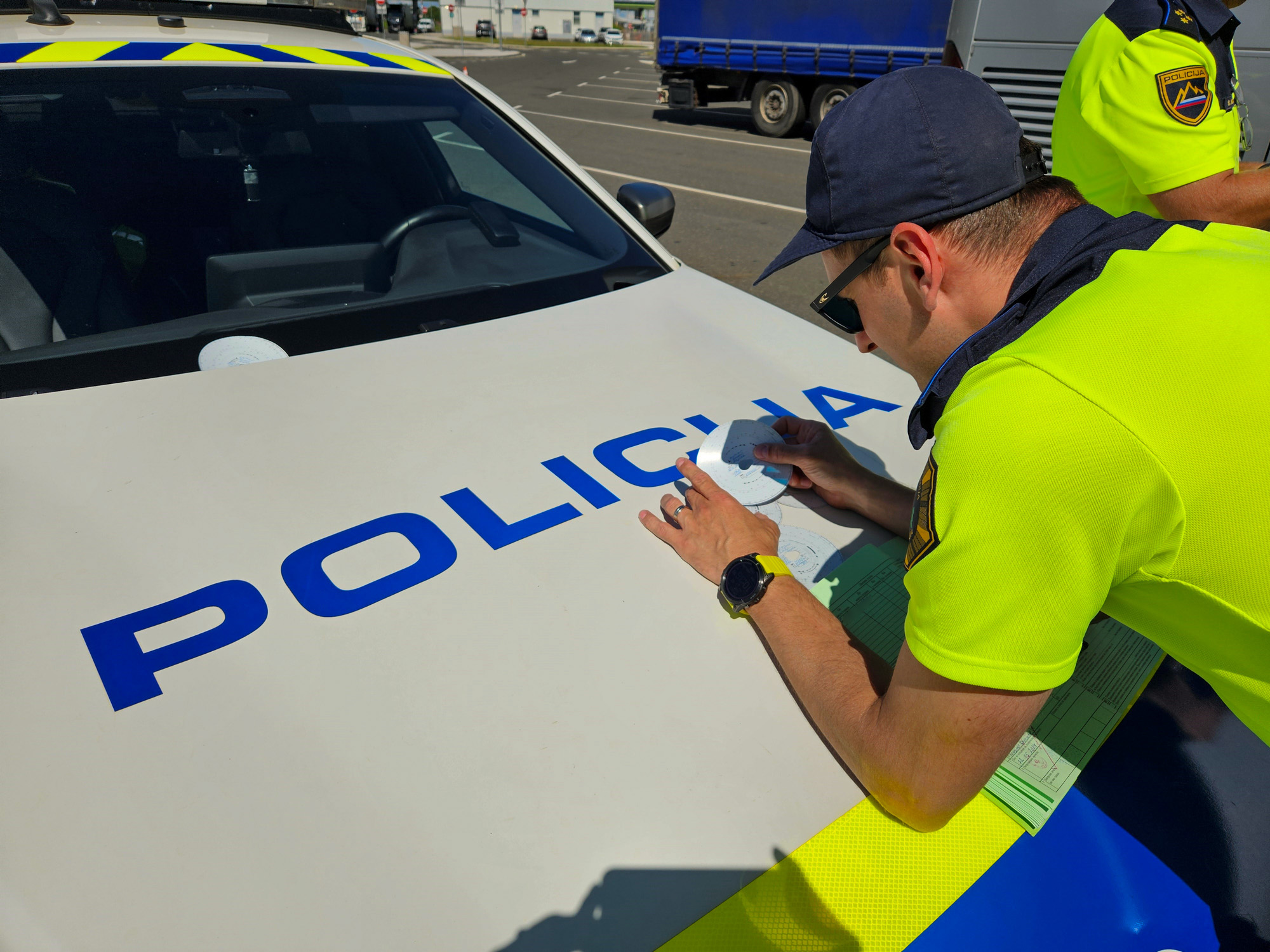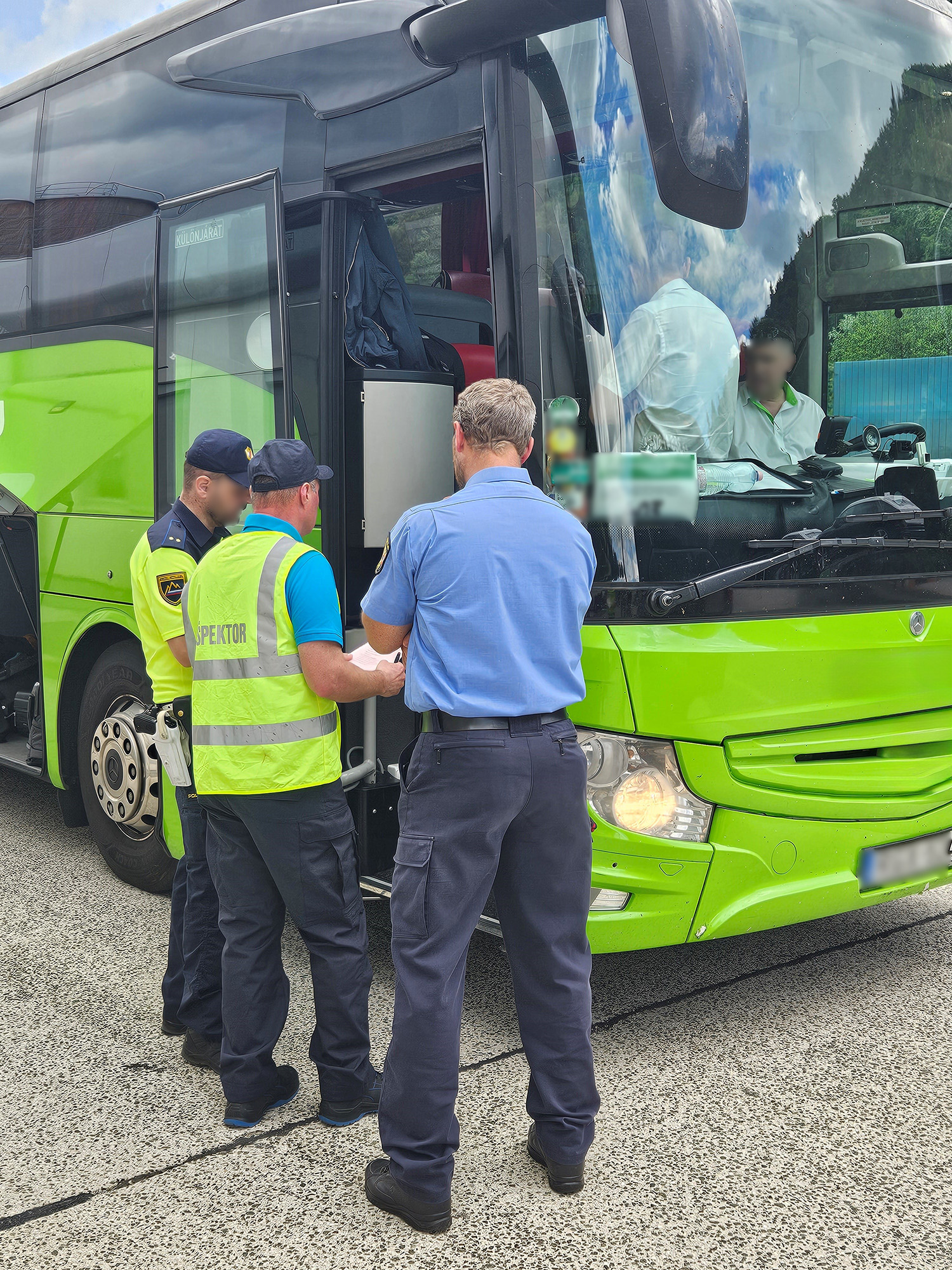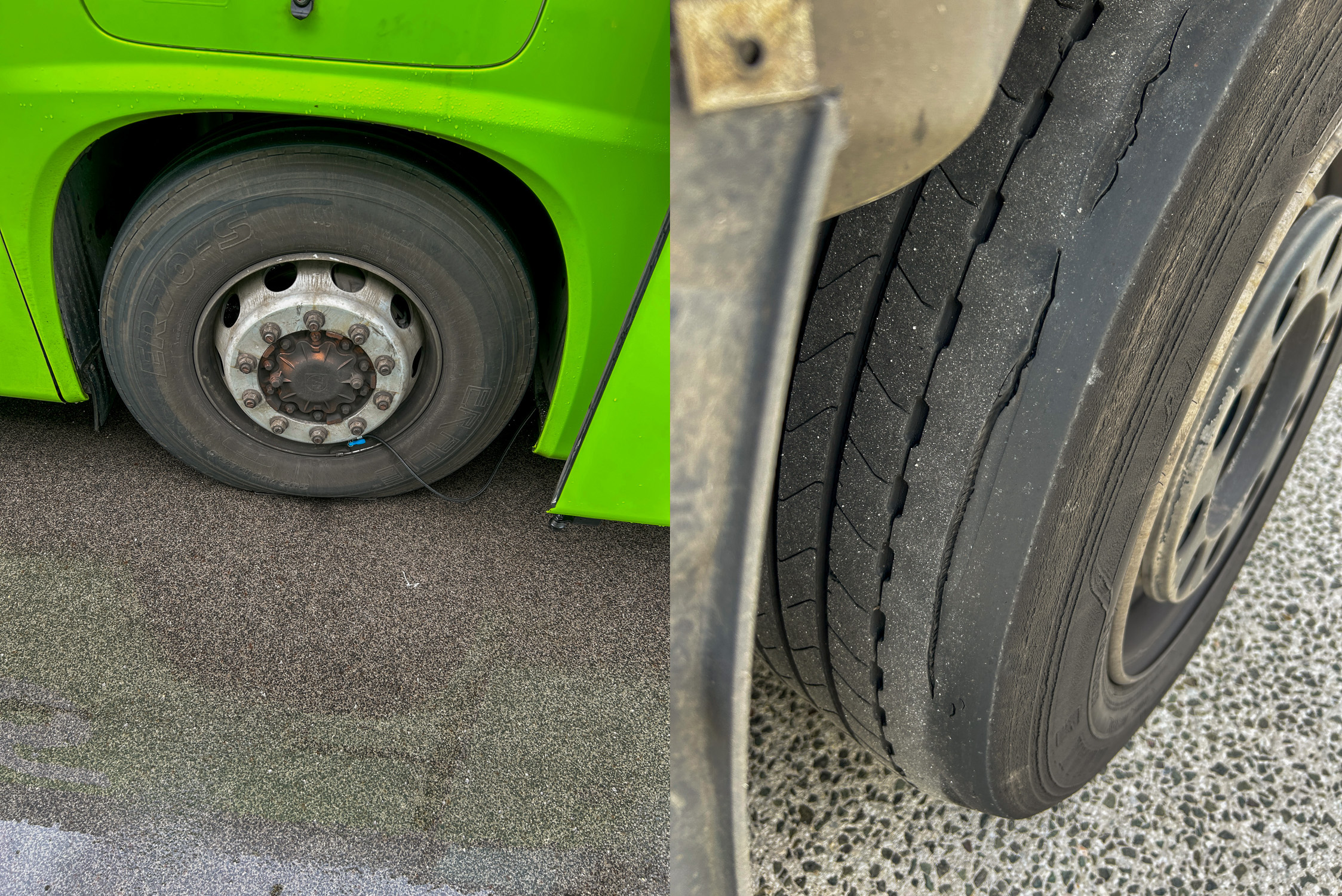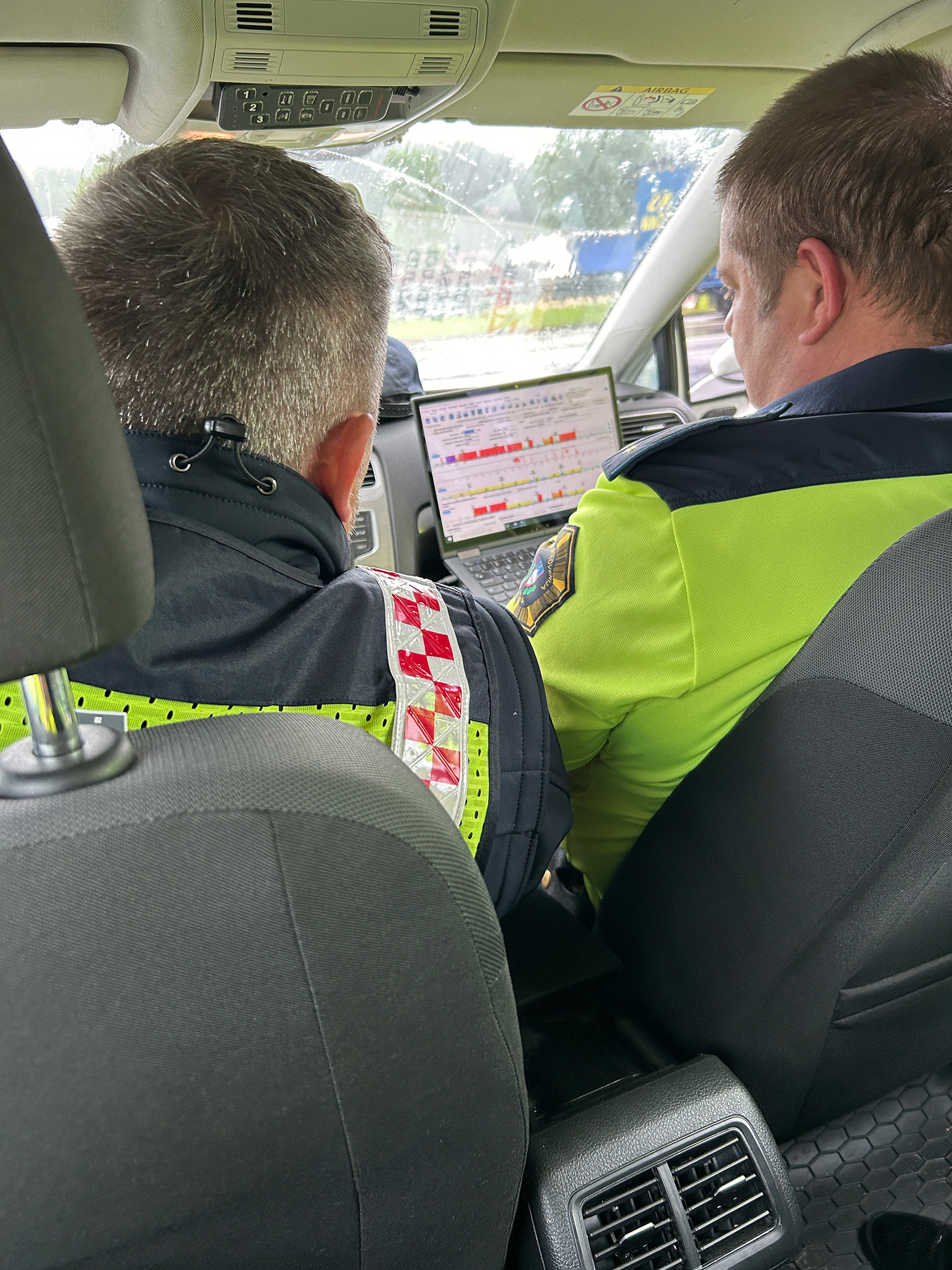Inspection of the international carriage of passengers by coaches and buses in Slovenia was organised on 22-23 May 2024 on various sections of the national highway network.
The Slovenian Infrastructure Inspectorate, the Slovenian Police, the Slovenian Financial Administration, the DARS motorway company, and the Labour Inspectorate along with enforcement officers from Austria, Croatia and Germany participated in the cross-border inspection supported by the European Labour Authority.
RoadPol and European Commission observers were also present. In total 293 buses were checked, thereof 97 buses from domestic operators, 143 buses from EU operators and 53 buses from third-country (non-EU country) operators.
Technical conditions of majority of buses, especially those older than 10 years, were critical. Two buses were excluded from traffic due to very serious faults in the braking system and steering mechanism. Many infringements were related to driving with a second driver card, driving without a card, manipulation of tachographs and insufficient weekly rest periods. Irregularities were also found in the non-operation of planned bus lines and the operation of lines contrary to the authorisation and timetable. Finally, inspectors found a case of undeclared work.

